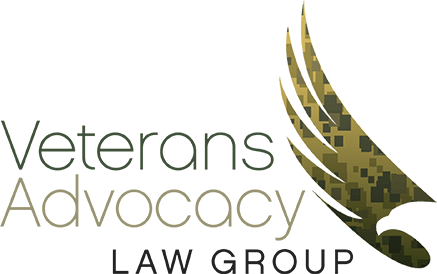CVE on Ownership
Regarding Center for Verification and Evaluation (CVE) verification, 38 CFR 74.3 (b) states that ownership must be unconditional. Ownership by one or more veterans or service-disabled veterans must be unconditional ownership. Ownership must not be subject to conditions precedent, subsequent conditions, executory agreements, voting trusts, restrictions on assignments of voting rights, or other arrangements causing or potentially causing ownership benefits to go to another (other than after death or incapacity).
CVE Evaluation
The pledge or encumbrance of stock or other ownership interest as collateral, including seller-financed transactions, does not affect the unconditional nature of ownership if the terms follow normal commercial practices and the owner retains control absent violations of the terms. In particular, CVE will evaluate ownership according to the following criteria for specific types of small business concerns.
Control Of Business
Control is the thing the CVE cares about the most in making a verification decision. Quorum restrictions written into bylaws were the number one reason for CVE verification denial in September 2013. This is because some boilerplate quorum language requires a majority of directors or shareholders to be present for voting, rather than a majority of shares. The CVE has interpreted this language to mean the veteran owner may not have control if additional shareholders do not show up to vote.
However, according to most companies' bylaws, directors are elected during the annual shareholders' meeting. As a result, the Veteran owner who owns at least 51% of the voting stock and is the President of the Company could independently call a shareholders meeting, name a new board whenever he/she wishes, and keep doing that until he/she gets a board that is willing to capitulate to his/her desires. Also, if under the CVE's posited hypothetical, board members failed to show up to a board meeting, thereby blocking quorum, the Veteran owner could independently convene a shareholder meeting, elect a new board, and independently call a special meeting of directors. There is no meaningful way that a director or group of directors could do more than briefly delay the passage of anything the Veteran owner sought to do with his/her company. Because the Veteran owner controls a majority of voting stock and directors are elected by the shareholders, the Veteran owner controls the Board, the majority of which serve at his/her pleasure.
Full-Time Employment
Our firm regularly sees letters from the CVE stating "In order for a concern to qualify as an SDVOSB, according to 38 CFR § 74.4(c)(1)," an owner engaged in employment or management outside the applicant concern must submit a written statement supplemental to the application which demonstrates that such activities will not have a significant impact on the owner's ability to manage and control the applicant concern. According to the submitted documents the service-disabled Veteran holds outside employment. Please submit a detailed letter of explanation.
On January 19, 2011, the VA published the comments stakeholders submitted in response to its proposed rules comments published in the Federal Register on February 8, 2010, (75 FR 6098). ( See attached) In those comments, under the heading Section 74.4 (c)(1), Single Business, Full-Time Control, the VA acknowledged commenters’ opposition to the requirement that the eligible owner work full-time in the business. The Agency responded “We agree and have reinstated the text of the Interim Final Rule published…on May 19, 2008” allowing “Owners need not work full-time but must show sustained and significant time invested in the business.” There is also no requirement that the veteran owner manage individual employees, or “micro-manage” his/her business, but rather that he/she maintain day-to-day control of the applicant company.
The COFC has held that the CVE cannot interfere with owners’ ordinary business decisions, which are within the unique purview of the owners. See Miles Constr., LLC v. United States, 108 Fed. Cl. 792, 803 (2013), proscribing CVE interference with what is considered a “normal commercial practice.” Importantly, the role of the CVE is to determine whether the Veteran owner has the requisite experience to manage the concern and to receive an explanation that his/her outside employment will not interfere with his/her ability to manage the concern.
How Can Veterans Advocacy Law Group Assist Me In Navigating the CVE Verification Process?
We understand that veteran-owned firms may find it difficult to navigate the Center for Verification and Evaluation (CVE) verification process. This is the specific scenario in which a veteran's CVE certification attorney becomes extremely important. Our knowledgeable attorneys can help you through every stage of the CVE certification procedure, making sure that your application is precise, thorough, and formatted best to increase the likelihood of approval.
Our CVE certification lawyers for veterans bring a wealth of knowledge regarding the specific eligibility criteria, required documentation, and common pitfalls to avoid. By leveraging our expertise, we can streamline the process, helping you to avoid unnecessary delays or rejections due to incomplete or incorrect information. Additionally, we can provide strategic advice to strengthen your application, including how best to demonstrate control and ownership, which are critical components of the CVE verification criteria.
Having a qualified lawyer by your side also means that you will have support in the event of challenges or appeals, which helps prevent your company from losing out on the benefits that accompany CVE verification. At Veterans Advocacy Law Group, our focus is to streamline and alleviate the burden of the verification process so that you can concentrate on your core competency—managing your business.
If you are a Veteran with a business and have a problem with a government contract, please contact the experienced attorneys at Veterans Advocacy Law Group at (888) 680-9612 or complete an online contact form.

